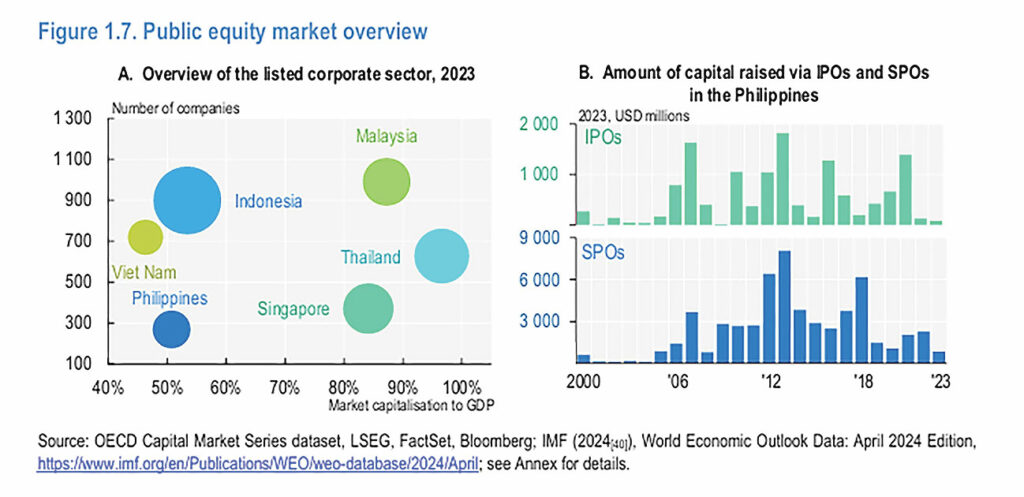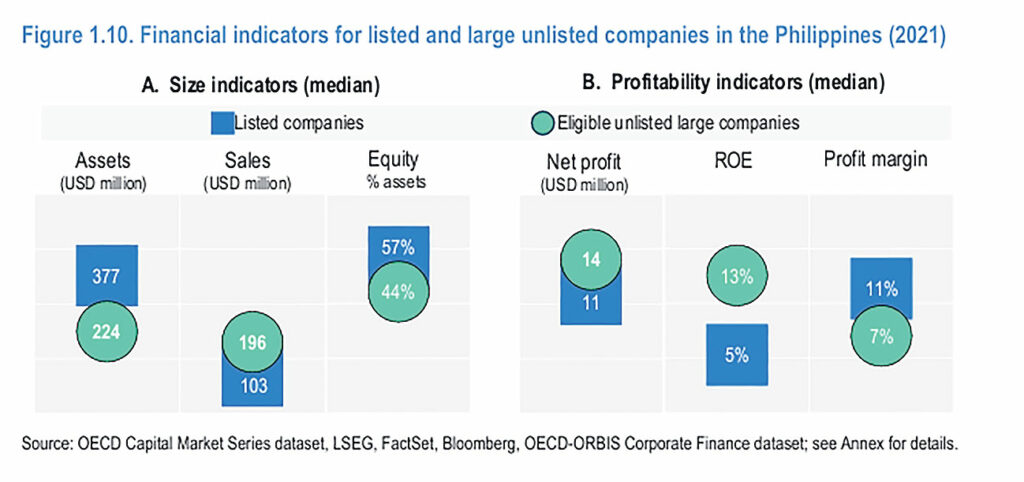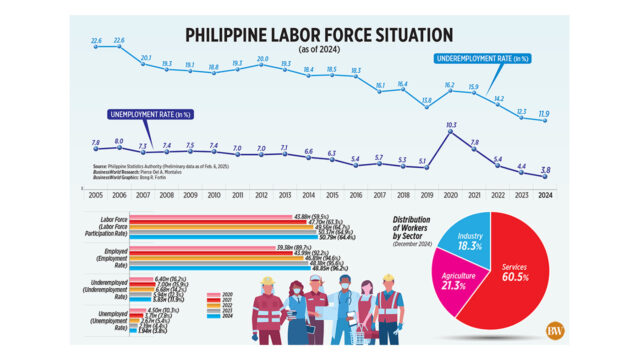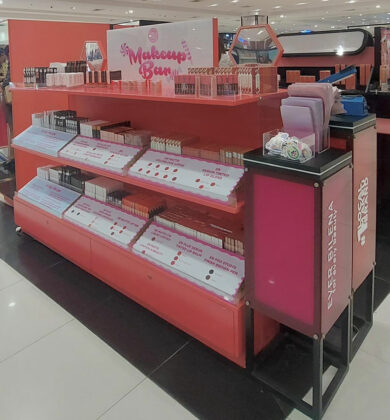“Sustainability” has become a buzzword in corporate circles in the Philippines. It is not unusual to hear or read in the media companies, businesses, and brands trumpeting sustainability initiatives: from reducing plastic use to adopting renewable energy, and planting trees. We even see glossy annual reports from listed companies showcasing various sustainability initiatives — purporting compliance to, and adoption of, ESG principles and UN Sustainable goals.
However, by just looking at these news reports and published corporate materials, we can readily see that in the cacophony of these sustainability listings, there seems to be some deep and systemic issues that are not seriously being taken up — which I think are more serious than the current subjects of drum beatings. Truthfully, there are other seemingly basic sustainability issues that businesses need to focus on that are outside headline-friendly causes.
Businesses need to go beyond mere superficial commitments and pay attention to less discussed but equally critical sustainability issues, to shy away from inauthentic rhetoric and gestures towards more substantial and impactful actions that can also be high-profile and celebrated by businesses and brands.
There are several sustainability issues that are worthy of attention and yet not explored and embraced by many Filipino businesses and brands. Among others, these issues include water resource management, electronic waste disposal, sustainable housing, and preservation of cultural heritage. Clearly, these initiatives can also be considered as essential in managing and protecting the environment as they have the potential to promote long-term business resilience and overall societal good — raison d’etre of any well-meaning corporate sustainability programs.
WATER RESOURCE MANAGEMENT: NEXT CRISIS
One of the major issues that confront the country is water resource management. Clearly, the news headlines do not necessarily foreground this issue, especially during La Niña season, but water scarcity is an existential threat to industries and communities alike. Water may not be an obvious concern given the archipelagic nature of the country, but the Philippines lacks clean and accessible water. Studies show that we are suffering from over-extraction of groundwater and there is pollution of freshwater sources both of which exacerbate the current water resource management crisis. Surely, most of us have experienced water shortages during the dry season, and scientists are predicting that the shortage will get worse in the years ahead.
Evidently, corporations, especially in manufacturing, agriculture, and energy, happen to be the biggest water customers. Unfortunately, very few of these corporations have the proper, and enough, measures related to water conservation. Few of them have systems involving rainwater harvesting, and fewer still have watershed protection programs.
Business enterprises need to take proactive measures in reducing their operational risks, thereby contributing to a water-secure country — which is a highly necessary and yet rarely talked-about sustainability issue and concern. For example, partnering with local governments in rehabilitating a watershed can surely ensure a continuous supply of water and yet we hardly see any such initiatives. It is about time companies and businesses take full cognizance of this sustainability issue before it is too late.
E-WASTE: THE INVISIBLE MOUNTAIN
E-waste, which is largely not included in corporate sustainability programs, has flooded our daily lives since the widespread adoption of technology and the onslaught of the digital revolution. Everyone knows and understands that e-waste contains hazardous materials such as lead and mercury, which can leak into the environment if not disposed of appropriately. And yet there is not enough infrastructure in the Philippines for recycling e-waste, and thus most is dumped in landfills or informal recycling centers, which poses serious health risks to the workers.
This problem calls for aggressive and serious action by tech companies and retailers. For one, implementing aggressive take-back programs for old devices, public education campaigns on e-waste disposal, and investments in proper recycling facilities can really help. I think this is one of the areas where tech brands and other related business enterprises can really show off their leadership in environmental protection and management.
URBAN LIVABILITY AND GREEN SPACES: A FORGOTTEN PRIORITY
You only need to walk or drive around in major cities in the Philippines to witness how rapid urbanization has transformed them into sprawling metropolises, often at the cost of green spaces. More and more people are experiencing that their mental health and physical well-being are deteriorating due to urban heat islands, bad air quality, and the lack of recreational areas. Unfortunately, not all real estate developers and businesses involved in designing cities and communities choose sustainable urban landscapes and designs.
Indeed, we cannot overly emphasize that green buildings, vertical gardens, and public parks should not be treated as after-thought investments. The new norm dictates that mixed-use development that includes green spaces can have the capacity to make the city more habitable and environment friendly. Failure on these fronts promises to condemn cities to eventual uninhabitability — a proposition that ought to concern even the most casual urban investors and common city-dwellers.
MARINE CONSERVATION BEYOND PLASTICS
While corporate campaigns to reduce single-use plastics have gained traction, more comprehensive marine conservation issues remain on the sidelines. Overfishing, coral reef destruction, and mangrove deforestation are critical problems that rarely receive corporate attention.
Marine resource-dependent industries, such as fisheries, tourism, and shipping, are interested in having healthy marine ecosystems. Nevertheless, not many have begun to adopt sustainable practices that might reduce their footprint. For instance, some of the most obvious ways businesses might contribute to the cause involve supporting sustainable fishing, investing in coral reef restoration, and funding projects for mangrove reforestation.
The Philippine economy is basically linked to its seas, and ignoring these broader issues risks environmental degradation and also the collapse of industries depending on marine resources.
SAFE, AFFORDABLE, AND SUSTAINABLE HOUSING FOR EMPLOYEES
Another overlooked sustainability issue is the provision of safe, affordable, and sustainable housing for employees. Most manufacturing and retail workers live in informal settlements that are susceptible to natural disasters and lack basic utilities.
More than a social issue, housing is a sustainability challenge. Poor living conditions lower productivity and harm the well-being of workers, which then drags down business performance. Corporations could collaborate with both government and non-government agencies to develop affordable housing with disaster-resilient designs and sustainable materials. One of the long-term strategies for sustainability could also include financing options or subsidies for employee housing.
CULTURAL PRESERVATION AMID GLOBALIZATION
Quite often, the loss of the cultural heritage of indigenous people is the cost of globalization and modernization. Tourism and industrial ventures disrupt the ways of life of the native people, and corporate sustainability programs rarely address this type of cultural erosion.
However, cultural heritage is something with which businesses can differentiate themselves. Indication of native knowledge through integration in their sustainability practice, promoting local artisans, and the creation of responsible eco-tourism can all serve as a means of adding cultural conservation into the sustainability agenda for the company. Without this, one does not only cause the alienation of the local community but will deny businesses unique and meaningful opportunities for relationship building with their stakeholders.
CLIMATE ADAPTATION FOR VULNERABLE COMMUNITIES
Whereas most companies invest in climate change mitigation such as carbon footprint reduction, there is a gross underinvestment in climate adaptation. Businesses largely ignore vulnerable communities in flood-prone or typhoon-affected zones.
Businesses can be a vital part of building climate resilience. Constructing disaster-resilient infrastructure, financing early warning systems, and supporting community-based renewable energy projects are practical ways to help communities adapt. Such efforts not only protect vulnerable populations but also keep local markets and supply chains running.
THE BUSINESS CASE FOR OVERLOOKED ISSUES
Why do corporations need to push beyond normal efforts toward sustainability? What’s the business case for the adoption of these “alternatives”? Answer: long-term value creation.
1. Risk Mitigation. Non-action in these areas has risks related to business continuity. Businesses that develop proactive action and initiatives with respect to these concerns shield their organizations from potential interruptions.
2. Better Reputation. Studies have shown that consumers and investors increasingly favor businesses that demonstrate genuine and authentic commitments to sustainability. When corporations address and adopt less-publicized issues, they can differentiate their companies from others and assume leadership in corporate responsibility initiatives.
3. Regulatory Compliance and Incentives. It is accepted that governments are beginning to tighten regulations on sustainability. When companies and businesses adopt forward-thinking measures, they may gain a serious competitive edge, potentially through provisions of tax incentives, grants, and/or favorable policies.
4. Strengthened Community Relations. Ultimately, companies will be able to develop better and stronger relationships with their communities when they choose to address housing issues, access to water resources, or preserving cultural elements. Consequently, embracing and pushing forward with these types of initiatives builds stronger ties with stakeholders in the organizations.
OPPORTUNITIES AND CHALLENGES
The solutions above are not without their challenges because many require long-term strategies, large-scale investments, and the participation of various parties. Companies cannot adopt symbolic approaches but need to include those initiatives into core strategies and plans.
The opportunities, however, far outweigh the obstacles. Holistic approaches to sustainability in Philippine businesses future-proof operations, attract talent and investment, and make meaningful contributions to national development.
The Philippines stands at the crossroads. As it confronts environmental and social challenges, large corporations have the resources and reach to drive systemic change. Not only is this approach an ethical imperative regarding critical sustainability issues such as water resources management, e-waste, sustainable housing, and cultural heritage preservation, but it is also the best strategic investment in the future.
For businesses, time is of the essence. Over and above the basics, solving these deeper issues will be the step that not only builds corporate resilience but makes a legacy of meaningful difference. Sustainability is not less bad; it is more good. The Philippine business community should take on this challenge, an agenda as comprehensive as it is transformative.
Dr. Ron F. Jabal, APR, is the CEO of PAGEONE Group (www.pageonegroup.ph) and founder of Advocacy Partners Asia (www.advocacy.ph).
ron.jabal@pageone.ph
rfjabal@gmail.com























